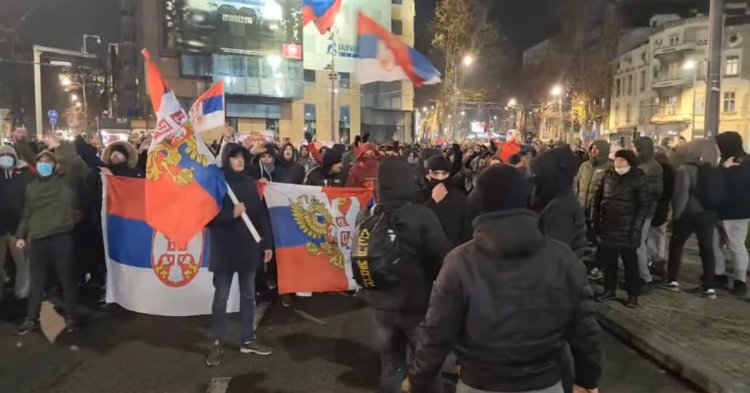Sometimes there are things that are not given the importance they deserve. Normally, when you drive around in your car, you don’t stop to think about how impactful the letters on the license plate that delimit the country can be. However, in recent years, Serbia and Kosovo reached extremely high levels of tension due to disputes surrounding it.
To understand this, we have to comprehend the peculiarities of the area. Many of you will remember or have heard about all the problems that occurred in that region in the last decade of the 20th century, but many probably are not aware that those wounds are still open and that today there are still latent conflicts between some of the countries resulting from the third Balkan war that damaged Europe and horrified the world. Talking about “resulting countries” is already a terminological controversy, as Kosovo is not recognized by Serbia, since its independence process was unilateral. In fact, within the EU, my own country, Spain, does not recognize it either; as well as Greece, Cyprus, Slovakia and Romania.
The refusal of these countries has different motivations. Some believe they cannot recognize Kosovo because it achieved independence through a unilateral process, which they see as an attack on international law. Others have close ties with Serbia that prevent them from taking a stance, and some are afraid of setting a precedent that fuels separatist movements within their own country.
Both countries, Kosovo and Serbia, aspire to join the EU, so they make profound diplomatic efforts to achieve it. Despite that, these efforts may come to nothing given their inability to stabilize relations with each other, which is necessary in order to join the Union. Serbia is a candidate country, while Kosovo is a potential candidate country until the veto is lifted by the countries that do not recognize it.
I started the article by mentioning the issue of license plates because it is a curious conflict, over relatively inconsequential details, that illustrates the situation in the region where tensions are very high. Between 2021 and 2023, in response to a road blockade by a Kosovo Serb minority in northern Kosovo, the circulation of license plates with Serbian identification was banned, threatening those who did so with fines. This provoked a reaction from Belgrade, which reciprocated with the same measure.
In these years, the EU acted as a mediator and facilitated several agreements on interim measures, such as covering license plates with identification stickers every time they crossed the border. Those turned out to be an absurd solution which complicated traffic. Finally, on December 26, Serbia has lifted the ban on Kosovar license plates, calling them “license plates approved by the Provisional Institutions of Self-Government in Pristina.” Kosovo is now expected to do the same.
At the time, it seemed like an achievement, finally, Serbia and Kosovo are taking steps towards reconciliation and acceptance!
However, in an intriguing turn of events, just two days later, massive demonstrations erupted in Serbia over allegations of electoral manipulation. These allegations, supported by the EU, are of serious concern as they involve pressures on voters, including the buying of votes in the elections held on December 17th, which secured victory for the Serbian Progressive Party, led by Vučić, who is characterized as a populist nationalist. In case it is true, the damage to Serbian democracy will be highly detrimental to its integration process and its relationship with Kosovo as it indicates that the move was nothing but a political maneuver to shift the media focus rather than a genuine commitment of reconciliation with the young country.
The road to the integration of both countries into the EU is long, but it’s a path being gradually constructed. The EU, with the involvement of all its members without exception, must focus on its sphere of influence in the Balkans, on stabilizing the region, and on combating the nationalism that has brought so much sadness to Europe, only weakening it.
As the primary investor in these countries, the EU should effectively monitor if the money flowing into these nations is truly effective in consolidating democracy and achieving integration goals.

Follow the comments: |
|
